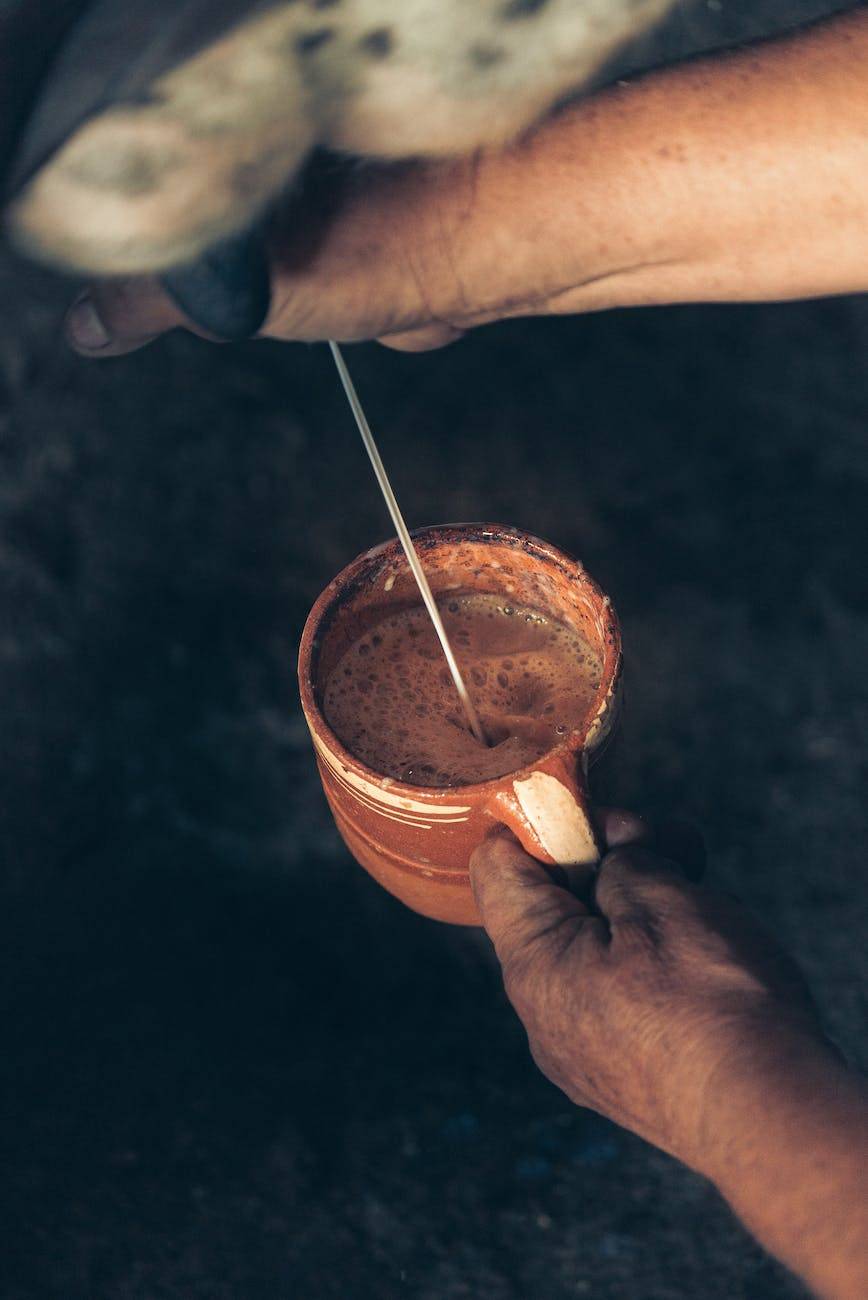Understanding Raw Milk
Before embarking on your journey to find the best ‘farm milk near me’, it’s important to understand what exactly raw milk is and what it entails from a health perspective.
Defining Raw Milk
Raw milk, simply put, is milk that has not undergone pasteurization, a heat treatment process that kills harmful bacteria. It can be purchased directly from local farmers, farmers markets or even through certain raw milk delivery services. This is the most natural form of milk as it comes straight from the cow, goat, or sheep and is not treated or processed before reaching the consumer.
Health Risks and Benefits
While some people believe that raw milk has health benefits, such as increased nutrient content and improved digestion, these claims are not supported by scientific evidence. In fact, raw milk can carry dangerous bacteria such as Salmonella, E. coli, Listeria, Campylobacter, among others that cause foodborne illness. The Centers for Disease Control and Prevention (CDC) even states that raw milk is responsible for over 50% of all milkborne illness outbreaks in the United States.
Therefore, while the idea of consuming milk in its most natural state can be appealing, it’s vital to consider the associated risks. It’s important to choose a reputable raw milk farm and follow proper handling and storage practices to reduce the risk of foodborne illnesses.
In the following sections, we will guide you on how to locate raw milk suppliers, what quality indicators to look for when purchasing raw milk, and safety considerations to keep in mind. This comprehensive guide is designed to help you make an informed decision about incorporating raw milk into your diet.
Locating Raw Milk Suppliers
Raw milk, being unpasteurized, isn’t readily available in most supermarkets due to health regulations. Therefore, one should know the right places to find ‘farm milk near me’. There are a couple of ways to locate raw milk suppliers, including online directories and local dairy farms in your vicinity.
Online Directories for Local Farms
One of the easiest ways to find raw milk suppliers is by utilizing online directories. Sites such as LocalHarvest.org or RealMilk.com allow you to search for local farms that sell raw milk, providing a convenient solution for those seeking fresh, raw milk Healthline.
Simply input your location into these directories and look for farms that offer raw milk. These platforms often provide contact information for the farms, allowing you to inquire directly about availability, prices, and pick-up or delivery options.
For more detailed information on where to find raw milk suppliers in your area, you can also visit our raw milk finder.
Montreal’s Dairy Farms
For those based in Montreal, QC, there are several local dairy farms that offer farm milk. These farms follow strict hygiene standards to ensure the safety and quality of their raw milk.
One such example is Six S Dairy, a farm known for its commitment to raw milk risk management practices and regular testing. According to their reports, the raw milk produced by Six S Dairy has low bacteria levels, ensuring safety for consumption.
Here are a few other Montreal dairy farms that offer raw milk, as noted by Yelp:
- Dairy Farm A
- Dairy Farm B
- Dairy Farm C
Each dairy farm has its own unique set of products and offerings, so it’s beneficial to research and compare options to find the best fit for your needs.
Whether you’re looking for a raw milk farm near me or seeking raw milk delivery near me, these resources can make your search for raw milk much easier. For an extended list of raw milk suppliers, check out our article on where to buy raw milk near me.
Quality Indicators for Raw Milk
When searching for ‘farm milk near me’, it’s essential to understand the quality indicators for raw milk. This knowledge will help you identify the best raw milk brands and raw milk farms in your local area.
Importance of Milking Procedures
Implementing proper milking procedures and ensuring cleanliness of milking equipment can significantly improve milk quality on the farm (Paul Mueller Academy). These procedures include maintaining the cleanliness of the cows and their environment to prevent the introduction of bacteria and contaminants into the milk.
Furthermore, regular maintenance and servicing of milking equipment can help ensure that it operates efficiently and does not contribute to milk contamination. By performing these steps, farmers can produce high-quality milk that meets the expectations of dairy lovers and foodies alike.
Significance of Regular Testing
Regular monitoring and testing of milk for quality indicators, such as somatic cell count (SCC) and bacterial count, are important for maintaining high milk quality (Paul Mueller Academy). High SCC is often a sign of mastitis in cows, a common disease that can affect milk production and quality. A low bacterial count, on the other hand, signifies that the milk was obtained, stored, and handled under sanitary conditions.
Apart from SCC and bacterial count, other factors like the temperature at which the milk is stored also play a significant role in determining its quality. Proper cooling and storage of milk after milking is crucial to maintain its quality and prevent bacterial growth.
By understanding these quality indicators, you can make informed decisions when choosing where to buy raw milk and select the highest-quality products available in your area.
Organic and Conventional Milk Comparison
When seeking out ‘farm milk near me’, it’s important to understand the differences between organic and conventional milk. These differences span across their production methods, nutritional content, and potential impacts on health and the environment.
Key Differences in Production
Organic milk comes from cows that are raised on organic feed and are not given antibiotics or hormones, and it is produced without the use of synthetic pesticides and fertilizers (Extension.msstate). Conventional milk, on the other hand, comes from cows that are raised on conventional feed and may be given antibiotics or hormones. These cows may eat feed that could contain pesticides or genetically modified organisms (GMOs).
Another difference lies in the testing and certification process. Both organic and conventional milk undergo testing for safety and quality, but organic milk also has additional requirements for certification (Extension.msstate).
Nutritional Value Comparison
Despite the differences in production methods, the nutritional content of both organic and conventional milk is similar, with small variations that are not considered significant (Extension.msstate). Both types of milk provide similar amounts of key nutrients like protein, calcium, and vitamin D.
However, there are some minor differences in the nutrient content between the two. Organic milk is often higher in omega-3 fatty acids and certain vitamins, such as vitamin E and beta-carotene, compared to regular milk.
On the other hand, regular milk may contain higher levels of certain synthetic hormones, such as recombinant bovine growth hormone (rBGH), which is given to cows to increase milk production (EatingWell).
These nutritional differences may be important factors to consider when looking for ‘farm milk near me’, depending on one’s dietary needs and preferences. Whether you prefer organic or conventional milk, it’s crucial to choose a reputable supplier to ensure you’re getting high-quality, safe products. For more information on locating raw milk suppliers, visit our raw milk finder.
Safety Considerations for Raw Milk
While raw milk can be a part of a healthy diet, it’s essential to be aware of the potential risks and how to handle this product safely.
Associated Health Risks
Raw milk can contain harmful bacteria such as Salmonella, E. coli, and Listeria, which are responsible for foodborne illnesses. According to the Centers for Disease Control and Prevention (CDC), raw milk is responsible for over 50% of all milkborne illness outbreaks in the United States (Healthline). These bacteria can be especially dangerous to people with weakened immune systems, children, older adults, and pregnant women (FDA).
Hence, it’s essential to consider these risks when choosing to incorporate raw milk into your diet. Always make sure to purchase from a reputable raw milk farm that follows stringent hygiene and testing practices.
Safe Handling and Storage Practices
To minimize the risk of foodborne illnesses, it’s crucial to follow proper handling and storage practices for raw milk. Here are some safety tips:
- Always keep raw milk refrigerated. It should be stored at a temperature of 40°F or below.
- Use the raw milk within its expiration date, and ideally within a week of purchase.
- Do not leave raw milk at room temperature for more than two hours.
- Practice good hygiene when handling raw milk. This includes washing your hands and using clean utensils.
For those particularly vulnerable to foodborne illnesses, it may be safer to opt for pasteurized milk. Pasteurization is a process that kills harmful bacteria in milk by heating it to a specific temperature for a set period of time (FDA).
Finding a reliable source of raw milk can be a challenge, but with our raw milk finder, you can discover trusted farms offering farm fresh milk near you. Remember, safety is paramount when consuming raw milk. By understanding the risks and following proper handling and storage practices, you can enjoy the benefits of raw milk while minimizing potential hazards.
Guidelines for Raw Milk Consumption
When looking for ‘farm milk near me,’ it’s important to understand the guidelines for raw milk consumption. This includes special considerations for certain groups, like pregnant women, and understanding the importance of pasteurization.
Recommendations for Pregnant Women
Raw milk and products made from raw milk, such as certain types of cheese, can pose serious health risks for pregnant women and their unborn babies. Even if the woman doesn’t feel sick, harmful bacteria present in raw milk can harm the baby. It’s recommended that pregnant women consume pasteurized milk to reduce the risk of infections and ensure safety for both the mother and the baby (Healthline). Pregnant women should thus be cautious when choosing from raw milk brands or seeking a raw milk farm near me for purchase.
Importance of Pasteurization
Pasteurization is a process that kills harmful bacteria in milk by heating it to a specific temperature for a set period of time (FDA). This process is an effective way to reduce the risk of foodborne illnesses associated with raw milk consumption. It’s particularly important for those who are at a higher risk of foodborne infections, including young children, the elderly, and individuals with weakened immune systems.
When searching for farm fresh milk near me, consider the safety benefits of pasteurization. Even when buying directly from milk farms near me, it’s important to ensure that the milk has been properly pasteurized before consumption. This combination of local farming practices and safe, modern processing techniques helps provide the freshest, safest milk possible.
Whether you’re seeking fresh cow milk near me or exploring organic milk near me, remember to keep these guidelines in mind to ensure that your quest for the freshest, richest milk doesn’t compromise the safety and health of you or your loved ones.




Leave a Reply